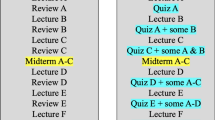Conclusion
The simple techniques described in this paper can be applied rapidly and inexpensively by personnel previously untrained in techniques of curriculum evaluation. They are unrefined and open to much serious methodological criticism. Nevertheless they work. They are a way of giving those who must make value judgements about the implementation of new curricula some systematic information on which to base opinions. By using such methods for example, the author was able to show that the experimental course in biology in Malawi had a very high chance of success (90 per cent probability) when implemented in all schools in Malawi. Similar studies of current experimental programmes in Kenya and Zambia have provided interesting comparisons. In Kenya the Secondary Science Project in Biology was shown to have an 80 per cent chance of succeeding when spread from trial schools to all schools. In Zambia by contrast the Secondary School Science Pilot Project of the Science Education School of the University was shown to have only a 20 per cent chance of success. These indices provided valuable guidance to the Ministries concerned (Meyer, 1971). The use of such simple techniques has not been previously employed in developing countries and changes of policy have been based invariably on unsystematic opinion. The methods reported in this paper, therefore, appear justified in the absence of practicable alternatives.
Similar content being viewed by others
References
Bloom, B. S. (Ed.) (1956). “Taxonomy of Educational Objectives. The Classification of Educational Goals”.Handbook I Cognitive Domain, New York McKay.
Meyer, G.R. (1970).Report to Division of Science Teaching, United Nations Educational Scientific and Cultural Organization on Three Months as Consultant to the Biology Panel of the Tanzania Institute of Education, University of Dar es Salaam on Aspects of Testing and Evaluation-SSP Biology, April to July 1970. Paris, UNESCO.
Meyer, G. R. (1971).Report to Division of Science Teaching, United Nations Educational Scientific and Cultural Organization of Eleven Weeks as Consultant to the Governments of Kenya, Tanzania, Zam bia and Malawi on Aspects of Biology Teaching-February to April 1971. Paris, UNESCO.
Nyerere, J. K. (1967).Education for Self Reliance. Dar es Salaam, The Government Printer.
UNESCO (1968).Investigating Living Things. Booklets 1 to 12. UNESCO pilot project for biology teaching in Africa. Experimental edition. Cape Coast, University Press Ghana.
Rights and permissions
About this article
Cite this article
Meyer, G.R. Problems in the summative evaluation of experimental science curricula in developing countries. Research 1, 119–134 (1971). https://doi.org/10.1007/BF02558523
Issue Date:
DOI: https://doi.org/10.1007/BF02558523




